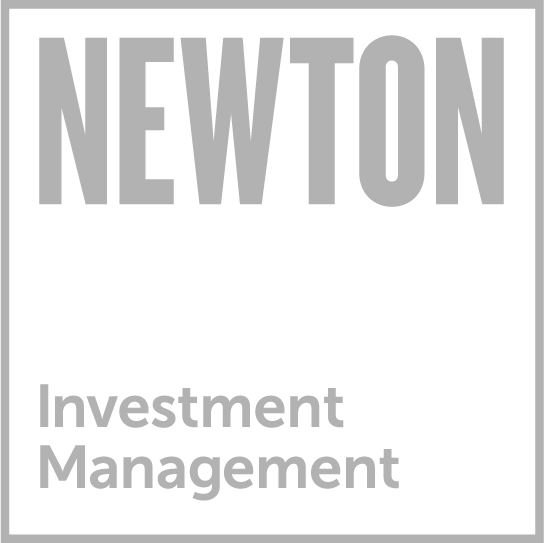Featured Mutual Funds (Open End Funds)
| Fund | Morningstar Investment Category | Sub-Investment Adviser |
|---|---|---|
| Large Growth | Fayez Sarofim & Co.(non-affiliate) | |
| Municipal National Intermediate | Insight | |
| Intermediate Core-Plus Bond | Insight | |
| Global Bond-USD Hedged | Insight | |
| Tactical Allocation | Newton | |
| Large Value | Newton | |
| Natural Resources | Newton | |
| Foreign Large Growth | Walter Scott |
Featured Exchange-Traded Funds
| Fund | Sub-Asset Class | Total Expense Ratio1 | Sub-Investment Adviser |
|---|---|---|---|
| Taxable | 0.22% | Insight | |
| Global/International - Growth | 0.80% | Walter Scott | |
| Global/international - Value | 0.65% | Newton |
BNY Mellon Appreciation Fund, Inc.
- The fund invests in companies we believe to be dominant in structurally attractive industries with sustainable long-term earnings growth trading at attractive valuations.
- The fund seeks to outperform the S&P 500 Index over market cycles with less risk.
BNY Mellon AMT-Free Municipal Bond Fund
- A traditional, national municipal fund that seeks a high level of current income exempt from federal income tax as is consistent with the preservation of capital.
- Fund invests at least 65% of its assets in municipal bonds with an A credit rating or higher.
- Process centered upon fundamental credit research with a focus on capital preservation.
BNY Mellon Core Plus Fund
- A total return bond strategy that dynamically invests across a set of broadly diversified market sectors including treasuries, corporates, mortgages, asset-backed, high yield and select foreign issues with an average effective duration between 3 and 8 years.
- A focus on portfolio precision and diversification using both top-down global macroeconomic and bottom-up security selection designed to enhance investor outcomes.
BNY Mellon Global Fixed Income Fund
- A comprehensive global bond fund with flexibility to take advantage of opportunities in over 30 countries across government, corporate bond, structured credit.
- With over 60% of bond opportunities coming from outside the United States, this strategy provides investors a wealth of diverse opportunities around the world.
- While predominantly a hedged strategy, the fund can take foreign currency positions when attractive opportunities present themselves, providing the potential for additional alpha generation without adding undue levels of currency risk.
BNY Mellon Global Real Return Fund
- An equity complement that seeks to mitigate portfolio risk but keeps the client invested for potential growth opportunities.
- An alternatives allocation providing similar, desirable competitive characteristics to those that may be found in other mutual funds.
BNY Mellon Dynamic Value Fund
- Dedicated value approach that is style pure; the fund may serve as a diversifier for a growth-oriented portfolio.
- Large cap stock focus may be suitable for a range of long-term financial objectives.
BNY Mellon Natural Resources Fund
- Dynamic positioning allows the portfolio management team to opportunistically adjust the portfolio in comparison to a passive commodity approach.
- Ongoing company analysis and risk management constantly monitor the portfolio.
BNY Mellon International Stock Fund
- The fund seeks long-term total return and seeks to invest in developed international companies that exhibit quality fundamentals and the potential for sustainable earnings growth.
- As an active manager, Walter Scott & Partners emphasizes a proprietary research process, a team approach and a long-term investment horizon in order to exploit the power of compound growth within the portfolio.
BNY Mellon High Yield ETF
- A passive high yield ETF Strategy providing broad access to the U.S. High Yield market and seeks to match the performance of the Bloomberg US Corporate High Yield Bond Index.
- Enjoys a low-cost expense ratio of 22 basis points with a fully transparent, liquid portfolio so investors can buy or sell any time the stock market is open.
BNY Mellon Concentrated International ETF
- The fund may be appropriate for investors seeking investment opportunities in developed international companies with strong fundamentals and the potential for sustainable earnings growth.
- Experienced investment team specializing in bottom-up, fundamental research looks to build a concentrated portfolio of high conviction investment ideas.
BNY Mellon Global Infrastructure Income ETF
- The fund provides a differentiated infrastructure approach – focusing on both traditional (energy, industrials and utilities) and non-traditional infrastructure assets (communication services, health care and real estate), which can provide a broader opportunity set in the infrastructure space.
- Infrastructure exposure offers investors an additional equity allocation with a focus on defensive business models and quarterly dividend income.
1 Total Expense Ratio as stated in the fund's most recent prospectus.
Investors should consider the investment objectives, risks, charges and expenses of a fund carefully before investing. To obtain a prospectus, or a summary prospectus, if available, that contains this and other information about a fund, contact your financial professional or visit im.bnymellon.com. Read the prospectus carefully before investing. Investors should discuss with their financial professional the eligibility requirements for Class I and Y shares, which are available only to certain eligible investors, and the historical results achieved by the fund's respective share classes.
Investment Risks
Please refer to the prospectus, or Annual Report (for Closed-End Funds) for a more complete discussion of the specific fund's main risks
Bonds are subject to interest-rate, credit, liquidity, call and market risks, to varying degrees. Generally, all other factors being equal, bond prices are inversely related to interest-rate changes and rate increases can cause price declines. The use of derivatives involves risks different from, or possibly greater than, the risks associated with investing directly in the underlying assets. Derivatives can be highly volatile, illiquid, and difficult to value and there is the risk that changes in the value of a derivative held by the portfolio will not correlate with the underlying instruments or the portfolio's other investments. Investing in foreign denominated and/or domiciled securities involves special risks, including changes in currency exchange rates, political, economic, and social instability, limited company information, differing auditing and legal standards, and less market liquidity. These risks generally are greater with emerging market countries. High yield bonds involve increased credit and liquidity risk than higher-rated bonds and are considered speculative in terms of the issuer’s ability to pay interest and repay principal on a timely basis. Municipal income may be subject to state and local taxes. Some income may be subject to the federal alternative minimum tax for certain investors. Capital gains, if any, are taxable. Guaranteed only as to the timely payment of interest and principal when held to maturity. The market prices for such securities are not guaranteed and will fluctuate. Mortgage-backed securities Ginnie Maes and other securities backed by the full faith and credit of the United States are guaranteed only as to the timely payment of interest and principal when held to maturity. The market prices for such securities are not guaranteed and will fluctuate. Privately issued mortgage related securities also are subject to credit risks associated with the underlying mortgage properties. These securities may be more volatile and less liquid than more traditional, government backed debt securities. Equities are subject to market, market sector, market liquidity, issuer, and investment style risks, among other factors, to varying degrees. Short sales involve selling a security the portfolio does not own in anticipation that the security’s price will decline. Short sales may involve risk and leverage, and expose the portfolio to the risk that it will be required to buy the security sold short at a time when the security has appreciated in value, thus resulting in a loss. Small and midsized company stocks tend to be more volatile and less liquid than larger company stocks as these companies are less established and have more volatile earnings histories.
Exchange-Traded Funds (ETF) Risks
ETF shares are listed on an exchange, and shares are generally purchased and sold in the secondary market at market price. At times, the market price may be at a premium or discount to the ETF's per share NAV. In addition, ETFs are subject to the risk that an active trading market for an ETF's shares may not develop or be maintained. Buying or selling ETF shares on an exchange may require the payment of brokerage commissions.
ETFs trade like stocks, are subject to investment risk, including possible loss of principal. The risks of investing in the ETF typically reflect the risks associated with the types of instruments in which the ETF invests. Diversification cannot assure a profit or protect against loss.
The ETF funds will issue (or redeem) fund shares to certain institutional investors known as “Authorized Participants” (typically market makers or other broker-dealers) only in large blocks of fund shares known as “Creation Units.” BNY Mellon Securities Corporation ("BNYMSC"), a subsidiary of the BNY Mellon, serves as distributor of the fund. BNYMSC does not distribute fund shares in less than Creation Units, nor does it maintain a secondary market in fund shares. BNYMSC may enter into selected agreements with Authorized Participants for the sale of Creation Units of fund shares.
©2024 Morningstar, Inc. All rights reserved. The information contained herein: (1) is proprietary to Morningstar and/or its content providers; (2) may not be copied or distributed; and (3) is not warranted to be accurate, complete, or timely. Neither Morningstar nor its content providers are responsible for any damages or losses arising from any use of this information. Past performance is no guarantee of future results. The fund represents a single portfolio with multiple share classes that have different expense structures. Other share classes may have achieved different results.
BNY Mellon Investment Management is one of the world’s leading investment management organizations, encompassing BNY Mellon’s affiliated investment management firms and global distribution companies. BNY Mellon is the corporate brand of The Bank of New York Mellon Corporation and may also be used as a generic term to reference the corporation as a whole or its various subsidiaries generally.
This material has been distributed for informational purposes only and should not be considered as investment advice or a recommendation of any particular investment, strategy, investment manager or account arrangement and should not serve as a primary basis for investment decisions. Information contained herein has been obtained from sources believed to be reliable, but not guaranteed. Please consult a legal, tax or financial professional in order to determine whether an investment product or service is appropriate for a particular situation. No part of this material may be reproduced in any form, or referred to in any other publication, without express written permission. BNY Mellon Investment Adviser, Inc. and BNY Mellon Securities Corporation are subsidiaries of BNY Mellon. © 2024 BNY Mellon Securities Corporation, distributor, 240 Greenwich Street, 9th Floor, New York, NY 10286.
MARK-512348-2024-03-12






